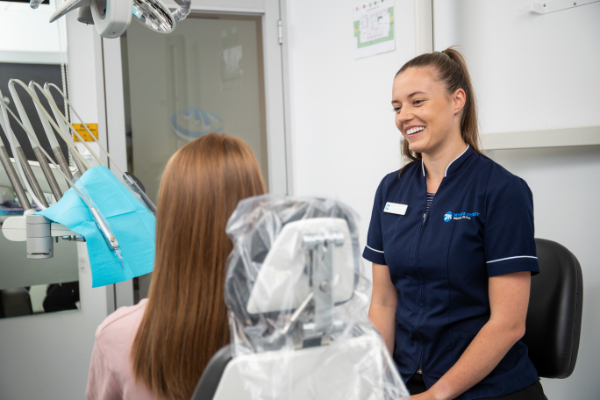Building Positive Oral Care Habits; Your Questions Answered

Why building positive oral habits is needed?
Did you know in Australia up to 42% of children have noticeable decay on their baby teeth and 1 in 4 will have tooth decay on their permanent teeth before they reach adulthood? While these are concerning – and preventable – statistics, most parents know how important it is to teach our children good oral care habits.
As parents, we can have a lot of concerns about our children’s health, including their dental care. There is so much information online and from various sources like well-meaning friends and family that it can leave us more confused than before. Having the right answers helps us set up good dental care routines for our children from a young age.
Questions like the ones below are common concerns we are often asked at the clinic.
- Why do children only need a tiny amount of toothpaste?
- How do I stop my child from eating toothpaste?
- Why should I worry about baby teeth if they will just fall out?
- What’s the best way to encourage my child to brush their teeth?
Here are some handy answers to keep our children’s smiles bright and healthy.
Why do children only need a tiny amount of toothpaste as one of their positive oral habits?
As an adult, you’re probably used to covering your brush with toothpaste from end to end. In reality, you don’t need that much and your children need even less. For children aged three and under, an amount the size of a grain of rice is all they need. From ages 3-6 a ball of toothpaste the size of a pea is more than enough.
How do I stop my child from eating toothpaste?
Don’t laugh, this is actually way more common than you think, especially if you’re using a toothpaste brand that’s very sweet or minty. Apart from monitoring your child’s brushing, try picking brands with less flavoured additives.
Also, if your child likes eating toothpaste try smearing the toothpaste into the bristles of the toothbrush rather than leaving a big ball of paste on top of the bristles. This means your child won’t just lick the toothpaste off and ask for more, and they have to actually brush their teeth in order to get the taste to emerge.
Another positive oral habits question:
Why should I worry about baby teeth if they will just fall out?
Some parents believe that they only need to worry about their children’s dental health once their baby teeth have fallen out and their permanent, adult teeth come in. There are a few reasons why this is especially wrong.
Firstly, practising good dental care is crucial from a young age as it sets up a lifetime of positive dental habits. Secondly, baby teeth are just as likely to develop plaque, tartar build-up and dental cavities as adult teeth. And finally, toddlers are susceptible to a condition called “dental caries” – a rot that leaves small holes in their baby teeth. This condition can progress to create infection and loss of their adult teeth.
A child who has active dental decay in baby teeth is setting up their mouth with the perfect bacterial environment for decay in the adult teeth that follow.
Also, when baby teeth are lost earlier than the adult teeth are ready to replace them, the facial jaw development of the child is affected, potentially leaving them with more crowding in the adult teeth.
What’s the best way to encourage my child to brush their teeth?
The best thing you can do to make teeth-brushing a habit is to introduce it early, often and consistently. From around the age of 6 months, simulate brushing the baby teeth that have come through with a baby toothbrush. As your child gets older, make sure they watch you brushing your teeth. It helps to act like you enjoy the process as well. Around their first birthday, schedule their first dentist’s visit to make sure everything is nice and healthy. You won’t need to start flossing until their teeth start touching, but until then make teeth brushing a fun ritual!
So even though we might have brushed our teeth every day for as long as we remember, when it comes to teaching our children good oral care, we might not be the expert. Brushing teeth as a child is very different to how we do it later in life. It is important to ask your dentist any questions you may have to get the correct and most up-to-date information for you to build a positive dental care routine for your child.
If you’re after a family dentist that takes the health of your child’s smile seriously, give us a call here at the Myers Street Dental Clinic and book in today!

Article by Brenda Loh
Brenda has a heart of gold – and patients like you love her for it. Wanting to look after people stems way back to when she was a child and now it still shines through everything she does. Born in Malaysia, of Chinese heritage, and raised in the inner suburbs of Melbourne, Brenda has been a mainstay at the clinic since 2003 and has grown to love Geelong and the people around her.
